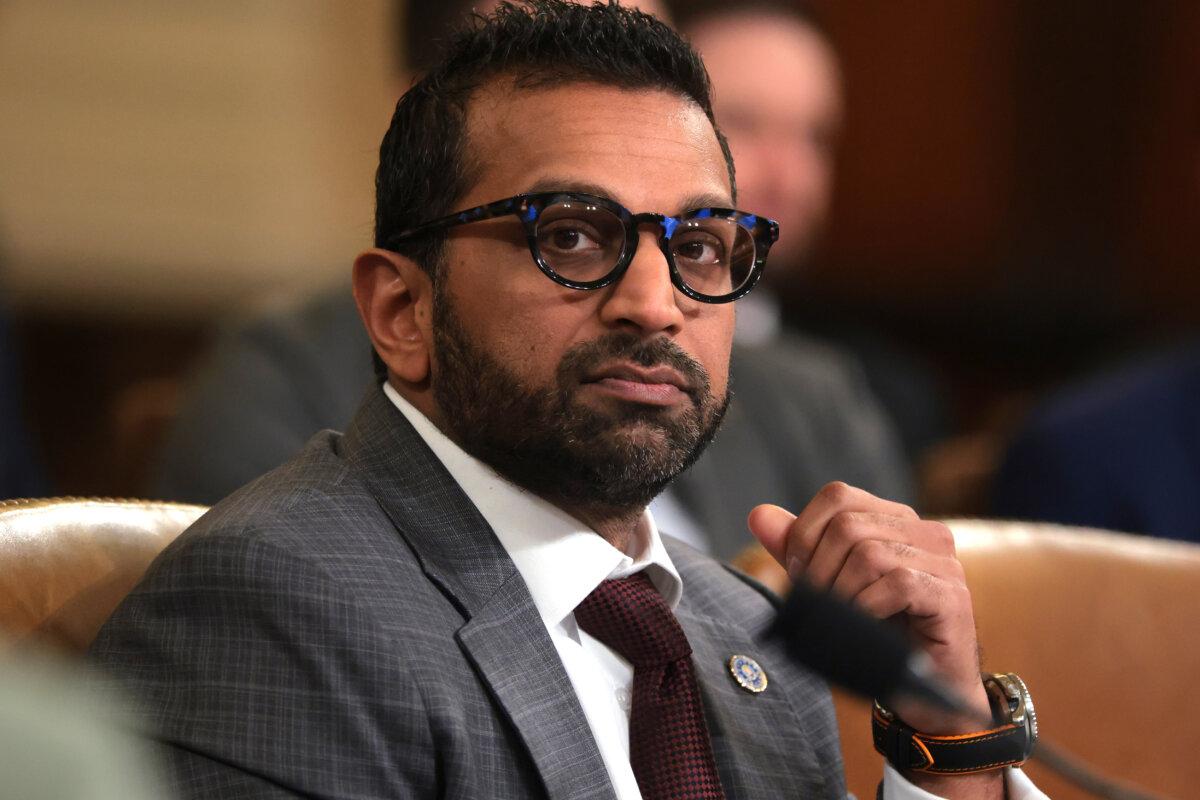Gun Rights and the Second Amendment: Analyzing Trump’s First 100 Days
Supporters of gun rights argue that the president is upholding constitutional freedoms, whereas gun control advocates maintain that his measures will increase risks in America.
During his 2024 campaign, Donald Trump vowed to safeguard the Second Amendment.
Gun rights supporters contend that he has fulfilled that commitment in the first 100 days of his second term, starting on January 21, the day after his inauguration.
This was when the website for President Joe Biden’s White House Office of Gun Violence Prevention became inactive. This office was a key component of Biden’s gun control agenda, along with the Bipartisan Safer Communities Act, which he signed on June 25, 2022.
Biden highlighted the law as the most substantial gun legislation in three decades. It enhanced background checks, allocated funding for mental health services and violence prevention initiatives, and expanded the list of individuals prohibited from firearm ownership.
Under Vice President Kamala Harris, this office was manned by veterans of the gun control movement tasked with “preventing gun violence and saving lives.”
The head of the Brady gun control organization expressed criticism over the office’s closure online.
“The White House Office of Gun Violence Prevention was not a political entity – it aimed to enhance the government’s capacity to protect Americans… from firearms,” wrote Brady President Kris Brown.
Gun rights activists are particularly interested in how the Bureau of Alcohol, Tobacco, Firearms, and Explosives (ATF) will function under a second Trump administration. Many believe the agency holds too much power.
In a widely popular move among gun rights advocates, Trump’s Department of Justice (DOJ) overturned the ATF’s Enhanced Regulatory Enforcement Policy—commonly known as the “Zero Tolerance Policy”—on April 7.
Critics of this policy argue that it allowed ATF inspectors to revoke federal firearms licenses from dealers for minor clerical errors that were previously regarded as insignificant violations. The zero-tolerance policy classified these mistakes as “willful” breaches of the law.
Gun Owners of America (GOA) initiated a lawsuit claiming that the ATF used this policy to intimidate gun dealers into shutting down.
The Epoch Times reached out to the ATF for a statement but did not receive a response prior to publication.
GOA reported that the amount of licensed dealers who ceased operations after a compliance inspection, despite having no adverse findings, surged from 96 in 2020 to 789 in 2021 following the policy’s implementation. This figure rose to 1,037 in 2022, a more than 1,000 percent increase from 2020.
GOA leadership welcomed these developments.
In an email to its members, Brady accused the administration of enacting hazardous policies.
“By ending this [Zero Tolerance] policy, the Trump Administration is effectively signaling to reckless gun dealers that they can now violate the law without repercussions,” asserted the email.
Brady’s email also criticized the administration for not designating a full-time director for the ATF.
“The ATF requires permanent, focused leadership dedicated to public safety, not the interests of the gun industry. Without appropriate leadership, the American public will ultimately bear the consequences,” the email warned.
FBI Director Kash Patel was appointed acting ATF director in February but was soon removed from that position. He was succeeded by Army Secretary Dan Driscoll.
The future of the ATF remains uncertain, with discussions about a potential merger with the Drug Enforcement Agency, though nothing has been confirmed.
Gun control advocates criticize Trump for adopting other actions under the pretense of fiscal responsibility.

FBI Director Kash Patel during an annual worldwide threats assessment hearing at the Longworth House Office Building in Washington, on March 26, 2025. Kayla Bartkowski/Getty Images
Funding reductions have also impacted the Centers for Disease Control and Prevention and the Department of Health and Human Services, organizations that study and compile data on gun-related violent crime and its societal effects.
“It’s not an exaggeration to claim that removing violence intervention personnel from communities will lead to a swift rise in violence—lives will be lost,” wrote Paul Carrillo, vice president of the Giffords Center.
The programs included $2 million for “national listening sessions involving individuals with lived experience,” $695,000 for “an assessment of police departments’ LGBTQ liaison services,” and $250,000 for “providing gender-affirming care to incarcerated transgender individuals, including housing in gender-appropriate facilities.”
Throughout his campaign, Trump also pledged to sign a national reciprocity bill if presented to him. This bill would mandate that states recognize concealed firearm permits from other states.
Permit holders would still need to adhere to all gun regulations of the state in which they are present. For instance, if a state bans firearms in places of worship, they cannot carry there even if allowed in their home state.
“All those laws, restrictions, and regulations would remain unchanged and fully enforced,” Amy Swearer, an attorney and senior legal fellow at The Heritage Foundation, informed The Epoch Times.
However, opponents argue that law enforcement would need to familiarize themselves with the firearm regulations across all 50 states.
David LaBahn, president and CEO of the Association of Prosecuting Attorneys, expressed opposition to the legislation for various reasons, including this one.
An Oklahoma resident in New York would be subjected to Oklahoma laws rather than New York laws, necessitating New York law enforcement to understand laws from all other states.
“With reciprocity, New York laws would not apply; your Oklahoma laws would take precedence,” LaBahn explained to The Epoch Times.
A reciprocity bill is currently in Congress, but its chances of reaching Trump’s desk seem slim.
Advocates of the Second Amendment generally express satisfaction with the president’s actions to date.
“The rescinding of the ‘zero tolerance’ policy is a significant adjustment that President Trump’s administration has made,” Mark Oliva, spokesman for the National Shooting Sports Foundation, stated in an email to The Epoch Times.
“The firearm industry recognizes that President Trump is adhering to his commitments.”
Gun control organizations did not respond to The Epoch Times’ requests for comments by the time of publication.




